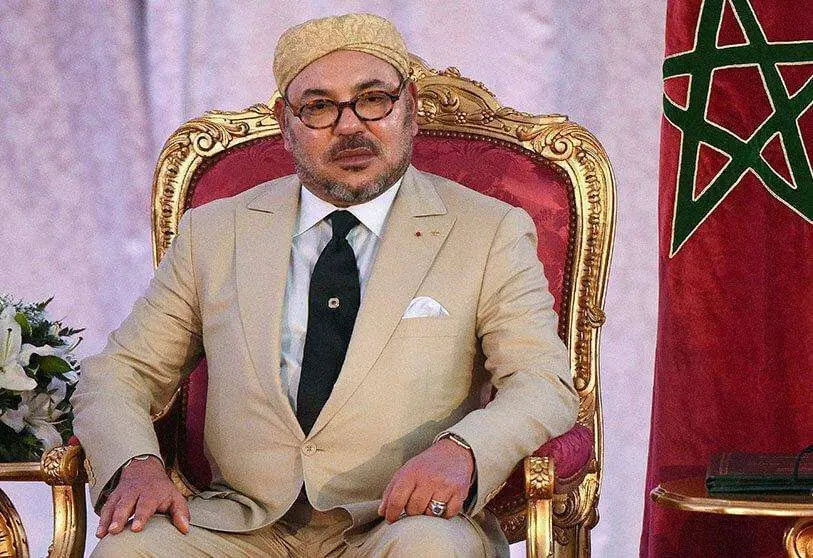Morocco, the kingdom that has changed Mohammed VI

"Moroccans are celebrating 23 years of a reign that has turned Morocco into a Maghreb power".
Morocco is a country so near and yet so far for many Spaniards. On the one hand, it is a country that fascinates, with its culture, music and gastronomy, almost a million Spanish tourists who cross the Strait of Gibraltar every year. On the other hand, it is a neighbour that still arouses fear or a certain rejection on the part of other sectors of the Spanish people for various reasons that mix history, sometimes ideology, immigration problems and the thorny current issues that are brought to the table between the two countries from time to time. Those who have had the opportunity to visit the southern shore of the Strait over the past two decades alone have witnessed the drastic changes Morocco has undergone in the 23 years of the reign of Mohammed VI, the monarch who has succeeded in making Morocco a totally different kingdom from what it was.
Moroccans are celebrating 23 years of the reign of Mohammed VI, who is turning Morocco, with intelligence and discretion, into a power in the Maghreb region. Never has a Moroccan monarch managed to bring about so many changes in such a short period of time as King Mohammed VI has done.
The kingdom south of the Strait of Gibraltar, which lacks the natural resources of gas and oil, now has an infrastructure that makes it one of the best places to live in the Arab world.
Morocco is the only country on the African continent with a high-speed train linking Tangier to Casablanca, and it soon links the north of the country with the south. The motorway network has also come to cover all regions of the country. Morocco's first highway connects Rabat and Safi and is the busiest motorway in Africa, with more than 45,000 vehicles a day on the section between Rabat and Casablanca.
The port of Tangier-Med, which was a real project, is a world logistics port located in the Strait of Gibraltar, will become in 2020 the first port in the Mediterranean and the second largest port in Africa.
As figures are always revealing, Tangier-Med is connected to 186 world ports, and has a capacity to handle 9 million containers, 7 million passengers, 700,000 trucks and 1 million vehicles. In addition, Tangier-Med is an industrial platform comprising more than 900 companies, which earn 7.3 billion euros in terms of annual turnover in the various automotive, textile, aeronautical, commercial, etc. sectors.
During the COVID-19 health crisis, King Mohammed VI reacted quickly and efficiently by implementing a strategy that has been considered by experts and the international press, including the Spanish press, as one of the most efficient strategies in the world, which is why the leading Spanish newspaper El País chose this title for one of its articles of 23 March 2021: "Morocco is at the global forefront in containment measures against the coronavirus". In the eyes of the Spanish newspaper, "Morocco is at the forefront of the countries that have adopted the most confinement measures in their fight against the coronavirus. Not even China has implemented such measures throughout its territory. Xi Jinping's government only completely paralysed transport in the province of Hubei, with a population of 60 million, where the city of Wuhan, with 11 million inhabitants, is located.
The country, whose anti-COVID 19 vaccination campaign was among the most advanced globally, was able to create the conditions for the creation of a vaccine production platform designed to supply domestic needs and expand the target market to Africa.
In this context of Russia's war against Ukraine, the entire Western world realises that there is nothing as vital in today's world as the guarantee of energy independence. The need to ensure energy security in Western countries and to invest more in renewable energies is now being talked about loudly in all corners of the world. Many years before this debate, King Mohammed VI was beginning to make his country a world leader in renewable energy. It was in 2009 that King Mohammed VI pointed out the importance of using environmentally friendly ways of consuming and producing energy: "Today, we are not only carrying out projects related to renewable energies, but we have a global strategy with targets to achieve. For example, in 2009 we set a target of 42% renewable energy capacity by 2020. Today, the target is 52% capacity by 2030," the monarch said in one of his speeches. Since then, Morocco has been building the world's largest solar power plant, the Noor-Ouarzazate complex. It is a huge network of curved mirrors spread over 3,000 hectares that concentrate the sun's rays into tubes of fluid, the hot liquid that is then used to produce energy.
In 2021, the technology magazine MIT Technology Review recognised Morocco's work for the environment in its “Green Future” report on 76 territories. The African country is now the leader in renewable energy in the entire MENA region (Middle East and North Africa).
The new Morocco is already a reality and change is already a fact thanks to the farsightedness of a monarch who has been able to steer his country and his people in the right direction, which has guaranteed his own stability and that of his European neighbours. What King Mohammed VI has done in 23 years only history will thank him for.
Nabil Driouch, writer and journalist.
Article published on Saturday 30 July 2022 in 20minutos

